|
Disclaimer: As I sit down to write this week's post, I will admit I am a little unsure of what I want to say. Usually when I begin writing things start to come, so I will start with some vague thoughts and see where we end up... The connections I am making right now (as usual) are with my students and their experiences in relation to what I have read this week. We are nearing the end of week 3 of online learning in Vietnam, due to the Coronavirus, and preparing for the likelihood of week 4. This is a new experience for us all and we are learning and adapting as we go. I am thinking about how this situation is SO "real world" for the students. Yes, they are only in grade 4, but they will need these skills their whole life. They need to know how to be researchers. They need to know how to find information. They need to be confident enough to adapt things to suit themselves, their limitations, and their situations. While we try to provide them opportunities for this, what is happening right now is a bit of a real test. There is a mix of success and areas for growth. And of course, we can all learn from these areas for growth. As Diana Laufenberg states in her TEDx Talk How to Learn? From Mistakes.  pxhere.com pxhere.com
What I am wondering is how much of an "active researcher" is being modeled to the students right now (and beyond this). If they were inside our classroom we could easily and instantly guide them to find things out for themselves and adapt what needs adapting. In a home learning situation it might be different. A lot of interactions can happen before they contact us for assistance. Maybe there is someone to help them, maybe not. Maybe they speak English, maybe not. Maybe they have experience teaching, maybe not. Maybe stress is caused, maybe it comes with a certain ease. We only see what (and when) they are emailing or posting to us.
My point is, whether it is impeded or not, students can and should be being taught these research skills from a young age. If anything, I am hearing this silent cry behind what is written in emails from caretakers, whether they know they are saying it or not. In today's day and age, I believe that everyone needs to be capable of finding things out on their own. Of being an inquirer. Of decoding instructions and making them relevant. While she was dealing with a different situation, Kath Murdoch put it better than I could in her latest blog post, Inquiry in the Mist - and Midst - of Troubling Times:
The "things" she speaks of are "the values of curiosity, wonder, open-mindedness, courage, open-heartedness, compassion, deep, critical thinking, exploration and agency." I see so much connection in this and understand what she means when she says that "our own bewilderment, anger and uncertainty have the potential to lead to helplessness, disconnection and even cynicism." Pieces of this are happening all around me at different times of the day and show themselves in different forms. I need to remember that people are going through a trying time right now. I need to remember that the "teacher" at home has many other duties to uphold. But I think they also need to remember that their child is amazing. Their child has the ability to do things on their own. Their child is flexible. Their child is a researcher and inquirer. With another connection, I leave you with a video entitled The Skill of Self Confidence by Dr. Ivan Joseph. My favourite sentance: "Pressure builds diamonds." Are you teaching for self-confidence? How do you know it is working? Has it been truly tested?
2 Comments
I felt like this week I really resonated with two different concepts/ideas from the readings. Because of this, I have split this post into two sections.
1) My personal journey from lurker to connector (literal connections) 2) How students learn when given freedom and inspiration - as they do with new media (concept of connection) 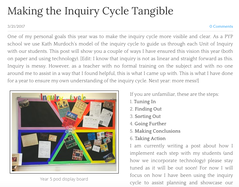 One of my first posts on my blog as PYP Coordinator One of my first posts on my blog as PYP Coordinator
In a general sense, I have already gone through a big break through from lurker to connector. When I was PYP Coordinator at Ajman Academy, I also had my own Year 5 class and was the Head of Computing Curriculum (getting it set up for teachers at a relatively new school). Somehow, this is also the year I started blogging and posting on Twitter.
I think it was a great way for me to debrief what was happening in my professional life. Not only was I receiving validation from my connections online, but I was also receiving feedback from more than just the four walls of my school in a small emirate of the UAE. I was giving myself time to reflect on my practices and shape my thinking before speaking with my teams. I resonated withKim Cofino's post "The Real Me." Especially with her quote, "In fact, I argued that the person I am online is the real me, perhaps even more so that the person they were sitting with in the room at that moment." Up until then I was generally a quieter person in my teaching career, and I feel like beginning blogging allowed me digest what I was doing before spitting it out to share with other people. In fact, I still feel this way a lot of the time. In a sense, this is more "The Real Me." Connecting with blogs and Twitter was a key experience for me when meeting with my year group teams as a PYP coordinator. In real life I am not usually someone to speak up right away until I fully understand what is happening and/or deeply respect (and feel respected by) the people around me. I now am immersed in a culture of "why" at ISHCMC and this barrier is being broken down for myself. I think blogging and tweeting were also huge influences to get me to this point. What I say has value. What I say has meaning. What I say should be heard, even if only as a bit of a "devil's advocate" some times. Being connected helped me realise this and continues to allow me time for slowing down my reflective thought process. Am I still a lurker sometimes? Of course! I think there has to be some balance here. Sometimes there is just too much going on mentally for me share, but I definitely continue to lurk. I have to be struck by something to feel like I have enough to write a whole blog post about it. But when I do, it seems to come fairly effortlessly. I worry less about making it perfect. It is a reflection my thoughts at the time of writing and I know this will continue to grow and take shape in different ways.
After reading "Living with New Media" I am still mulling over some connections I had. I work in a setting where students have a lot of agency over their learning. Students give workshops to other students, choose their inquiry groups, and set their own learning goals. We are innovating inside a box, if you will (as George Couros would put it), because we are still an IB PYP authorized school.
The conceptul connection of "new media" to, let's say, the "new classroom" can be interesting. How do we make our learning environments more like these types of medias our students are exposed to and becoming experts in/with? The article states that with new media, students' "efforts are also largely self-directed, and the outcome emerges through exploration, in contrast to classroom learning that is orientated toward set, predefined goals." I wonder what it might feel like to truly turn a classroom into a place of exploration and inspiration. Can an adult even set this up for a student? For a group of 105 students? Is that possible with the constraints of a curriculum? Is it enough to allow students to set their own learning goals in a subject when, in reality, it is still linked to something set by an adult at one point in time?
In a blog post here, AJ Juliani compares his thoughts on today's education to the Choose Your Own Adventure books many of us read as kids. He states the following: "We don’t know what the world is going to look like in 5, 10, 15 years. We don’t know what jobs will exist, what systems will be set up, and what our students will be doing. But I do know they’ll have a choice in what they do. They will still have to fail and recover just as we do now. I hope you understand as a parent or educator that inquiry should not be a cool “option” to have in a child’s education. Giving our students choice is the only thing that will prepare them to handle the future. Whatever it may bring."
This quote is comforting for what we are currently doing in Studio 4. I completely agree with Juliani that choice needs to be at the forefront of a student's lives at school.
I suppose something I need to look at a little more is pushing my students to connect (or even lurk) on things they are interested in that are relevant to their school curriculum needs. I have had a class Twitter account in the past that did lead to some meaningful (though limited) connections for my grade threes. I might push myself a little more to try this again and see what comes out of it. How do you see the connection of new media to today's classroom environments? |
Cindy KaardalThis blog page is specifically for my COETAIL blog posts. Archives
April 2021
Categories
All
|
Proudly powered by Weebly
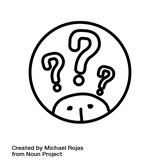
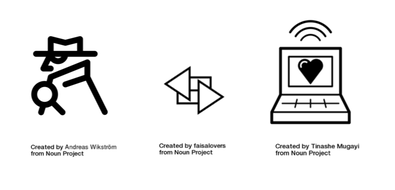
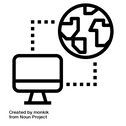
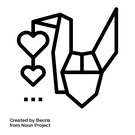
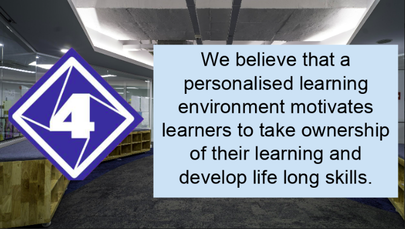
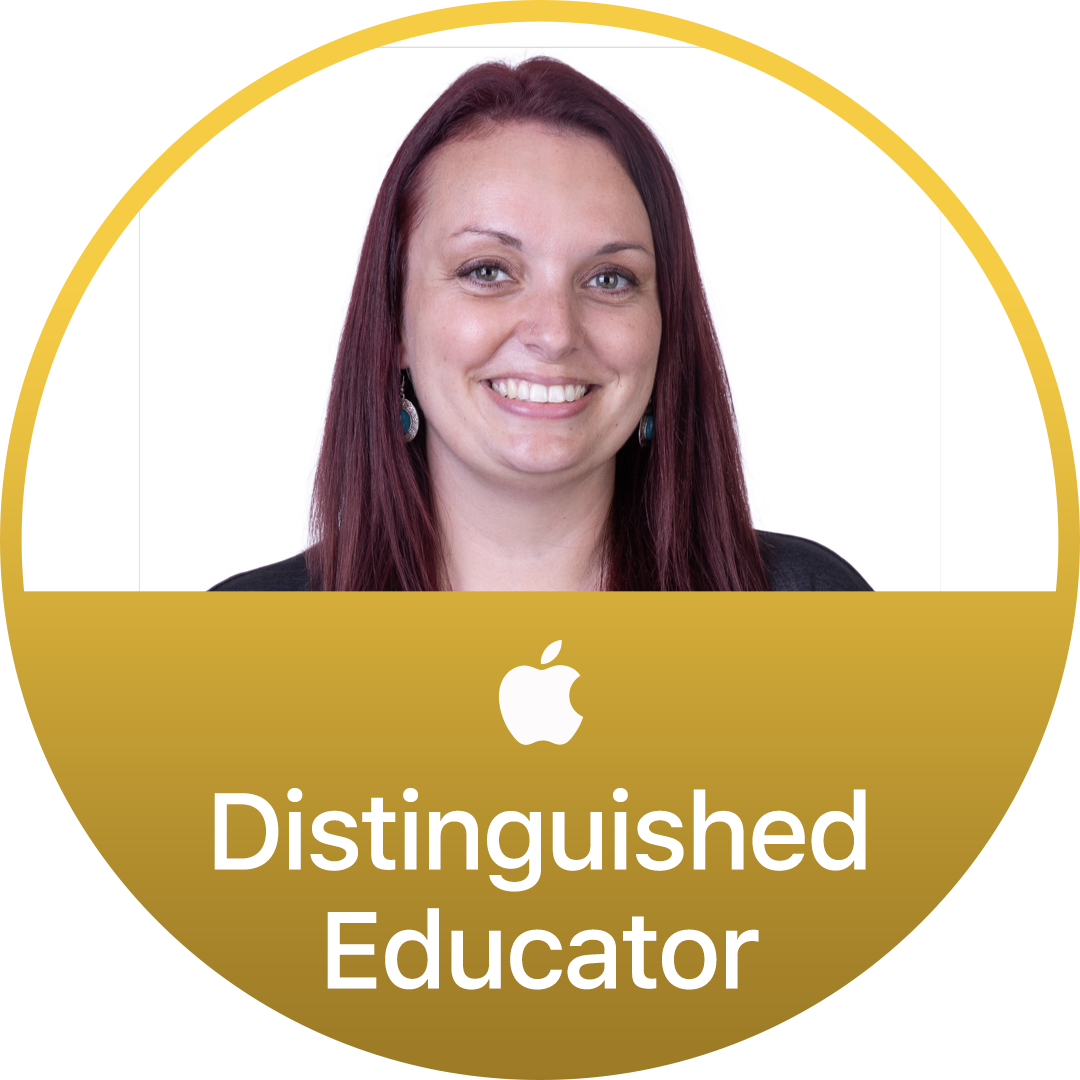
 RSS Feed
RSS Feed